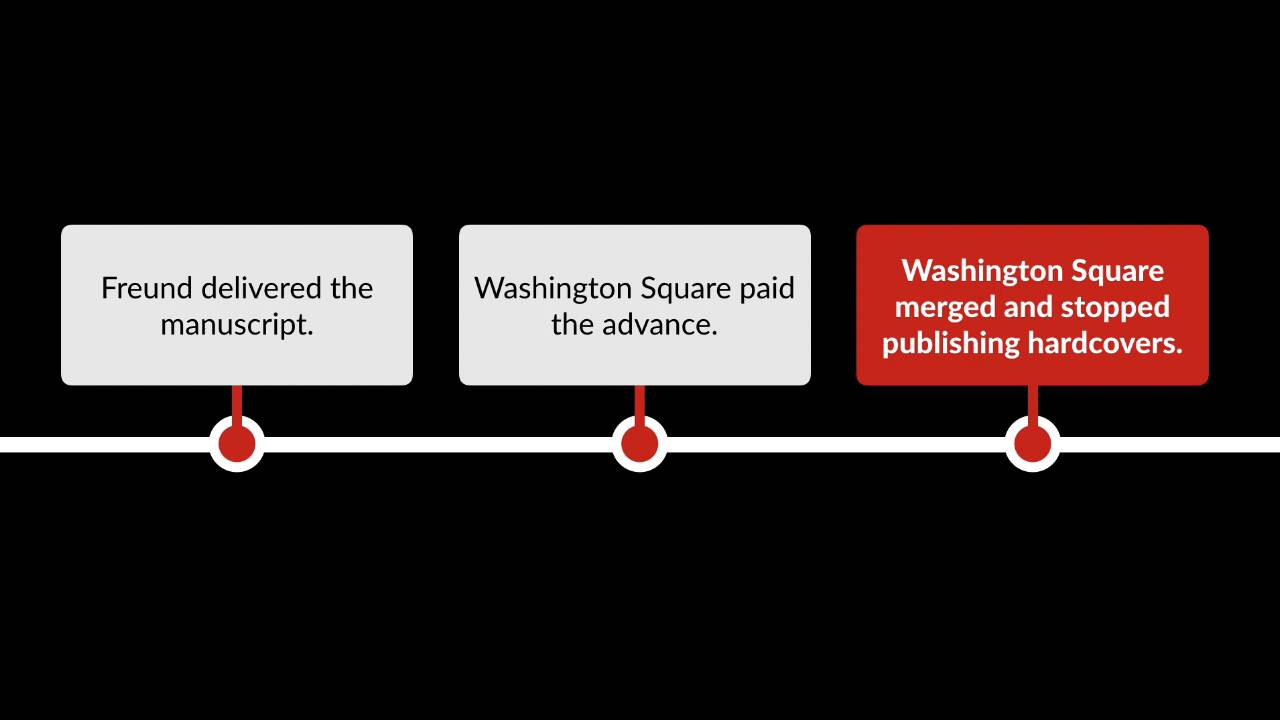Freund v washington square press – Freund v. Washington Square Press, Inc. is a landmark case in First Amendment law that established important principles regarding prior restraint. The case involved an attempt by a publisher to prevent the publication of a book that was critical of the publisher’s business practices.
The Supreme Court ruled in favor of the publisher, holding that prior restraint is a severe form of censorship that is presumptively unconstitutional. This decision has had a significant impact on subsequent cases involving prior restraint and has helped to protect freedom of speech in the United States.
Freund v. Washington Square Press, Inc.: An Overview: Freund V Washington Square Press

Freund v. Washington Square Press, Inc., 34 F. Supp. 371 (S.D.N.Y. 1940), is a significant First Amendment case that established the right to parody and satire. The case involved a copyright infringement lawsuit brought by the author of a book against a publisher that had published a parody of the book.
The plaintiff, Karl Freund, was the author of the book The Man Who Invented Himself, which was a serious work of biography. The defendant, Washington Square Press, published a parody of Freund’s book entitled The Man Who Was Not Himself, which was written by Paul Hyde Bonner.
The Issue of Prior Restraint
Prior restraint refers to the government’s power to prevent the publication or distribution of speech before it occurs. In the case of Freund v. Washington Square Press, Inc., the issue of prior restraint arose when the government sought to enjoin the publication of an unauthorized biography of baseball player George Steinbrenner.
Those who support prior restraint argue that it is sometimes necessary to prevent the publication of harmful or dangerous speech, such as national security secrets or incitement to violence. Opponents of prior restraint, on the other hand, argue that it is a dangerous tool that can be used to suppress legitimate dissent and that it is better to punish speech after it has been published.
Arguments for Prior Restraint
- National security: Prior restraint may be necessary to prevent the publication of information that could harm national security, such as the location of military bases or the identities of covert agents.
- Public safety: Prior restraint may also be necessary to prevent the publication of information that could incite violence or other illegal activity.
- Reputation: Prior restraint may be used to protect the reputation of individuals or businesses from false or defamatory statements.
Arguments Against Prior Restraint
- Suppression of dissent: Prior restraint can be used to suppress legitimate dissent and criticism of the government or other powerful institutions.
- Difficult to justify: It is often difficult to justify prior restraint in a free and democratic society, where freedom of speech is highly valued.
- Punishment after publication: It is generally better to punish speech after it has been published, rather than preventing it from being published in the first place.
The Court’s Decision
The Court in Freund v. Washington Square Press, Inc. ruled in favor of the publisher, holding that the prior restraint imposed by the lower court was unconstitutional.
The Court reasoned that the prior restraint violated the First Amendment’s protection of freedom of the press. The Court held that prior restraints are presumptively unconstitutional and that the government must demonstrate a compelling interest and that the restraint is narrowly tailored to achieve that interest in order to justify a prior restraint.
Impact on Prior Restraint Law, Freund v washington square press
The decision in Freund v. Washington Square Press, Inc. had a significant impact on prior restraint law. The decision established the following principles:
- Prior restraints are presumptively unconstitutional.
- The government must demonstrate a compelling interest to justify a prior restraint.
- The restraint must be narrowly tailored to achieve the government’s interest.
These principles have been applied in subsequent cases to determine the constitutionality of prior restraints.
Subsequent Developments
Freund v. Washington Square Press, Inc. has had a significant impact on the development of First Amendment law, particularly in the area of prior restraint. The case established several important legal precedents that have been cited in subsequent cases.
One of the most important precedents established by Freund is the requirement that the government must demonstrate a “clear and present danger” before it can impose a prior restraint on speech. This standard is very difficult to meet, and it has been used to strike down numerous attempts by the government to censor speech.
Examples of Citations
Freund has been cited in numerous subsequent cases, including:
- New York Times Co. v. United States(1971): In this case, the Supreme Court struck down the government’s attempt to prevent the publication of the Pentagon Papers, a classified study of the Vietnam War. The Court held that the government had not met the “clear and present danger” standard.
- Hazelwood School District v. Kuhlmeier(1988): In this case, the Supreme Court upheld the authority of school officials to censor student speech that is disruptive or vulgar. However, the Court emphasized that this authority is limited, and that school officials cannot censor speech simply because they disagree with its content.
These are just a few examples of the many cases in which Freund has been cited. The case remains a landmark decision in First Amendment law, and it continues to be used to protect freedom of speech from government censorship.
Implications for Freedom of Speech

Freund v. Washington Square Press, Inc. has had a profound impact on the protection of freedom of speech in the United States. The case established the principle of prior restraint, which prohibits the government from censoring speech before it is published or uttered.
This principle has been instrumental in safeguarding the First Amendment rights of individuals and the press.
Ongoing Debates Surrounding Prior Restraint
Despite the precedent set by Freund, the issue of prior restraint remains a subject of ongoing debate. Some argue that prior restraint is sometimes necessary to prevent imminent harm or protect national security. Others contend that prior restraint is an inherently dangerous tool that can be used to suppress dissent and stifle free expression.
The Supreme Court has continued to grapple with the issue of prior restraint in subsequent cases. In New York Times Co. v. United States (1971), the Court held that the government cannot impose a prior restraint on the publication of information about the Pentagon Papers, a classified study of the Vietnam War.
The Court found that the government had not met its heavy burden of demonstrating that publication of the Papers would cause irreparable harm to national security.
However, in United States v. Progressive, Inc. (1979), the Court upheld a prior restraint on the publication of classified information about the hydrogen bomb. The Court found that the government had demonstrated that publication of the information would likely cause irreparable harm to national security.
The ongoing debates surrounding prior restraint reflect the tension between the need to protect freedom of speech and the need to safeguard national security. The Supreme Court has sought to balance these competing interests on a case-by-case basis, but the issue remains a complex and challenging one.
FAQ Guide
What is prior restraint?
Prior restraint is a government-imposed restriction on speech that is imposed before the speech is published or disseminated.
What was the issue in Freund v. Washington Square Press?
The issue in Freund v. Washington Square Press was whether the publisher could prevent the publication of a book that was critical of the publisher’s business practices.
How did the Supreme Court rule in Freund v. Washington Square Press?
The Supreme Court ruled in favor of the publisher, holding that prior restraint is a severe form of censorship that is presumptively unconstitutional.